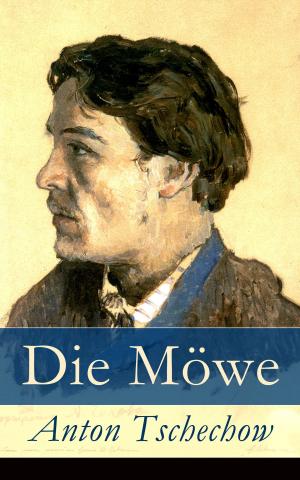THE WILL TO POWER (Modern Philosophy Series)
Including Autobiographical Work "Ecce Homo” & Personal Letters
Biography & Memoir, Philosophers, Nonfiction, Religion & Spirituality, Philosophy, Ethics & Moral Philosophy| Author: | Friedrich Nietzsche | ISBN: | 9788026876281 |
| Publisher: | e-artnow | Publication: | April 10, 2017 |
| Imprint: | Language: | English |
| Author: | Friedrich Nietzsche |
| ISBN: | 9788026876281 |
| Publisher: | e-artnow |
| Publication: | April 10, 2017 |
| Imprint: | |
| Language: | English |
"How does one become stronger? By deciding slowly; and by holding firmly to the decision once it is made. Everything else follows of itself.” ― Friedrich Nietzsche, The Will to Power This carefully crafted collection is formatted for your eReader with a functional and detailed table of contents. "The Will to Power (Vol.1&2)” describes what Nietzsche may have believed to be the main driving force in humans – achievement, ambition, and the striving to reach the highest possible position in life. These are all manifestations of the will to power; however, the concept was never systematically defined in Nietzsche's work, leaving its interpretation open to debate. "Ecce Homo: How One Becomes What One Is” is the last book written by Nietzsche before his final years of insanity that lasted until his death in 1900. According to Walter Kaufmann, Nietzsche's most prominent English translators, the book offers "Nietzsche's own interpretation of his development, his works, and his significance." "Selected Letters” includes various personal letters by Nietzsche to his family and friends. Friedrich Nietzsche (1844–1900) was a German philosopher, poet, and Latin and Greek scholar whose work has exerted a profound influence on Western philosophy and modern intellectual history. Because of Nietzsche's evocative style and provocative ideas, his philosophy generates passionate reactions. His works remain controversial, due to varying interpretations and misinterpretations of his work. In the Western philosophy tradition, Nietzsche's writings have been described as the unique case of free revolutionary thought, that is, revolutionary in its structure and problems, although not tied to any revolutionary project.
"How does one become stronger? By deciding slowly; and by holding firmly to the decision once it is made. Everything else follows of itself.” ― Friedrich Nietzsche, The Will to Power This carefully crafted collection is formatted for your eReader with a functional and detailed table of contents. "The Will to Power (Vol.1&2)” describes what Nietzsche may have believed to be the main driving force in humans – achievement, ambition, and the striving to reach the highest possible position in life. These are all manifestations of the will to power; however, the concept was never systematically defined in Nietzsche's work, leaving its interpretation open to debate. "Ecce Homo: How One Becomes What One Is” is the last book written by Nietzsche before his final years of insanity that lasted until his death in 1900. According to Walter Kaufmann, Nietzsche's most prominent English translators, the book offers "Nietzsche's own interpretation of his development, his works, and his significance." "Selected Letters” includes various personal letters by Nietzsche to his family and friends. Friedrich Nietzsche (1844–1900) was a German philosopher, poet, and Latin and Greek scholar whose work has exerted a profound influence on Western philosophy and modern intellectual history. Because of Nietzsche's evocative style and provocative ideas, his philosophy generates passionate reactions. His works remain controversial, due to varying interpretations and misinterpretations of his work. In the Western philosophy tradition, Nietzsche's writings have been described as the unique case of free revolutionary thought, that is, revolutionary in its structure and problems, although not tied to any revolutionary project.















